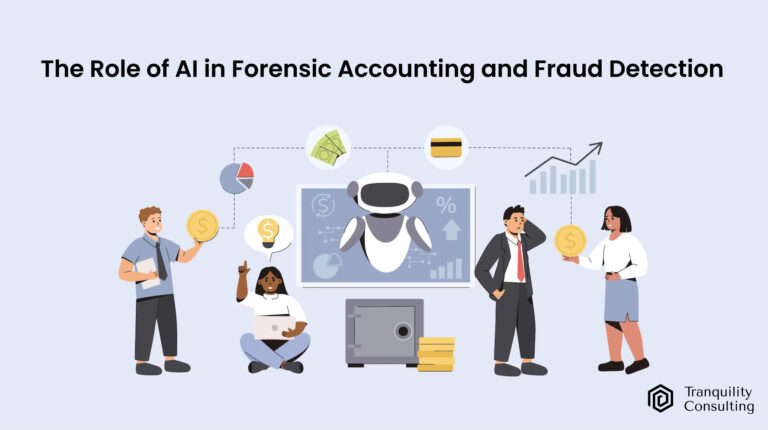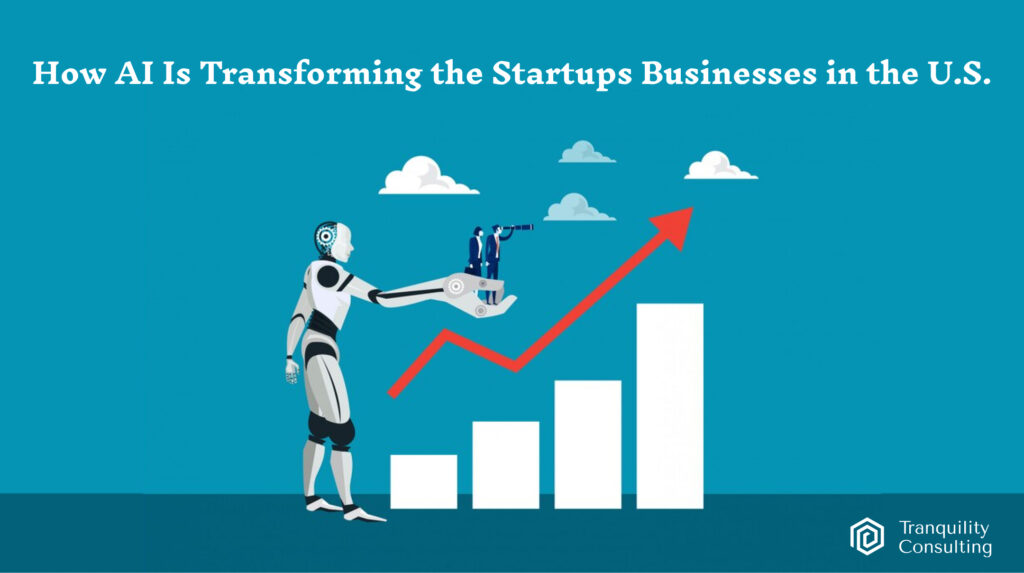Forensic accounting, a most important component in detecting and preventing fraud, has undergone significant changes with the advent of artificial intelligence (AI). Traditional forensic accounting methods, while effective, are labor-intensive and can need help with modern-day complexities, especially given the massive amounts of financial data now in circulation. With its powerful data analysis and pattern recognition capabilities, AI is reshaping forensic accounting. This blog delves into how AI transforms forensic accounting and fraud detection, highlighting its importance, benefits, and future trends.
Understanding Forensic Accounting
Forensic accounting is a specialized field that combines accounting, auditing, and investigative skills to examine financial records for fraud, embezzlement, and other financial misconduct. This discipline plays a crucial role in legal proceedings, corporate investigations, and dispute resolutions. Forensic accountants analyze financial data, prepare reports, and provide expert testimony in court cases. Key functions of forensic accounting include detecting hidden assets, analyzing complex transactions, and uncovering fraud patterns. With the rise of technology, forensic accounting now incorporates advanced tools like AI and automated data analysis to enhance the accuracy and speed of fraud detection.
How AI Enhances Fraud Detection
- Fraud detection has traditionally relied on manual audits and human expertise, but with the evolution of fraud detection technology, AI offers superior capabilities. One of the most significant advantages AI provides is its ability to analyze enormous datasets far more efficiently than humans. AI-powered systems can quickly process complex financial transactions, flagging unusual patterns that could signify fraudulent activities.
- Pattern recognition in fraud detection is a core functionality of AI, which allows it to spot anomalies or irregularities that humans may overlook. For example, machine learning algorithms can track and learn from historical data, thereby identifying patterns in fraudulent behaviors. This constant learning capability ensures that AI systems evolve to become more effective over time, improving their ability to detect new types of fraud that arise.
- Another key aspect is real-time transaction monitoring. AI systems can monitor transactions as they occur, immediately detecting any suspicious activities. Traditional forensic methods might only identify fraud after significant financial damage has occurred, but AI minimizes these delays, enabling a faster response.
Key Benefits of AI in Forensic Accounting
The integration of AI into forensic accounting presents several key advantages:
- Speed and Efficiency: With automated data analysis, AI can process large datasets at lightning speed, offering insights that could take human investigators days, or even weeks, to uncover. This capability is essential in time-sensitive situations where prompt fraud detection is necessary to mitigate financial losses.
- Increased Accuracy: AI minimizes the potential for human error, ensuring more accurate results. By using fraud detection technology that relies on machine learning, AI continuously refines its algorithms to improve detection accuracy.
- Cost-Effectiveness: Manual fraud detection can be time-consuming and costly, especially for large organizations. AI offers a more affordable solution by automating labor-intensive tasks, freeing up accountants to focus on strategic decision-making rather than repetitive tasks.
- Scalability: Traditional fraud detection methods may struggle to scale as organizations grow. However, AI systems can easily adapt to an organization’s needs, no matter how large or small. AI’s ability to handle large volumes of data without sacrificing efficiency is a major advantage for companies that operate on a global scale.
- Improved Compliance: Regulatory bodies are increasingly requiring companies to demonstrate more robust fraud detection measures. AI helps organizations stay compliant with laws by providing detailed audits and real-time reporting.
Challenges and Considerations
Despite the obvious benefits, adopting AI in forensic accounting also presents certain challenges.
- Data Privacy Concerns: AI systems require access to vast amounts of sensitive financial data to function effectively. This raises concerns about data security and privacy. Organizations need to ensure that robust data protection measures are in place to safeguard against breaches and misuse.
- Implementation Costs: Although AI can save money in the long run, the initial costs of setting up AI-powered fraud detection systems can be significant. Small- and medium-sized businesses may find these costs prohibitive.
- Dependence on Data Quality: For AI to function optimally, it requires high-quality, structured data. Inaccurate or incomplete data can lead to false positives or missed detections. Thus, ensuring data accuracy and completeness is critical for successful AI implementation in forensic accounting.
- Lack of Human Judgment: While AI excels in data processing and pattern recognition, it lacks the judgment and intuition that human investigators bring to the table. Fraud detection often involves analyzing behavioral cues, motivations, and complex financial structures that may require human interpretation.
- Ethical Concerns: The use of AI in forensic accounting raises ethical questions about reliance on machines over human judgment. If an AI system wrongly accuses someone of fraud based on flawed algorithms, it could result in reputational damage or wrongful prosecution.
Conclusion
AI in forensic accounting is transforming how organizations detect and prevent fraud. By leveraging fraud detection technology like automated data analysis, pattern recognition, and real-time transaction monitoring, AI offers unparalleled speed, accuracy, and scalability. However, businesses must also consider challenges such as data privacy, implementation costs, and the importance of human oversight. As AI continues to evolve, its role in forensic accounting will only grow, offering innovative solutions to combat financial crime.
FAQs
1. What is forensic accounting and why is it important?
- Forensic accounting involves investigating financial records to detect fraud or financial crimes, crucial in legal cases and fraud prevention.
2. How does AI enhance fraud detection?
- AI enhances fraud detection by automating data analysis, identifying suspicious patterns, and providing real-time monitoring of financial transactions.
3. What are the key benefits of using AI in forensic accounting?
- AI increases efficiency, reduces human errors, and can handle large datasets, making it indispensable for modern forensic accounting practices.
4. What challenges should businesses consider when implementing AI in forensic accounting?
- Businesses should consider data privacy concerns, the costs of AI implementation, and ensuring compliance with regulatory standards.
5. What are the future trends in AI and forensic accounting?
- Emerging trends include AI-driven blockchain analysis, predictive analytics, and continuous improvements in machine learning for fraud detection.
If you have any questions or need business-related tax consulting advice, please contact us at: [email protected]





